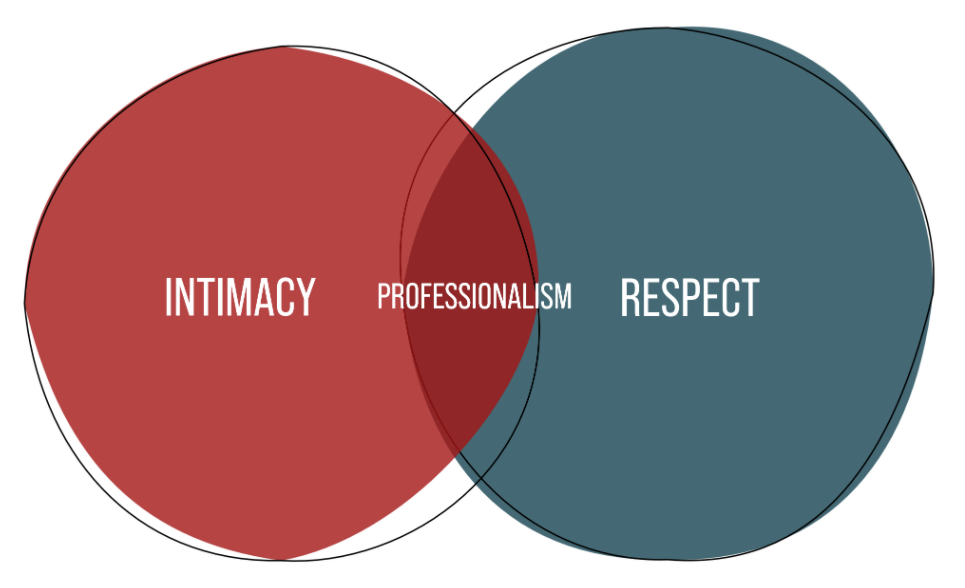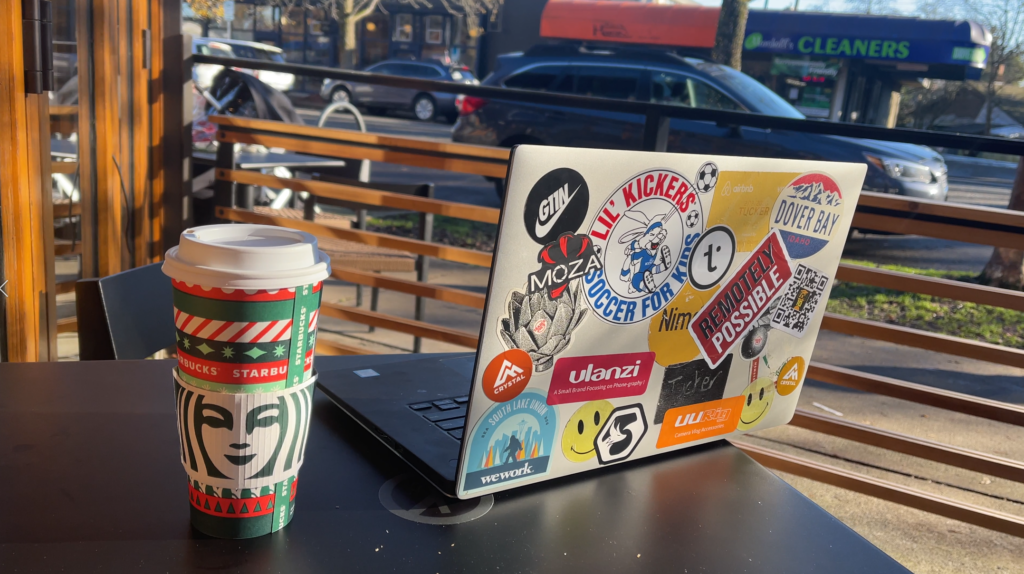Adapting to the changing definition of professionalism in remote work
Have you always wanted to play around with having a more fun, personal work persona, but you are afraid of seeming unprofessional? Working remotely is the perfect time to reinvent yourself so let’s talk about how.
Don't like reading? Watch the video!
Have you always wanted to play around with having a more fun, personal work persona, but you are afraid of seeming unprofessional? Working remotely is the perfect time to reinvent yourself so let’s talk about how.
Professionalism is about Intimacy and Respect
Basically, workplace professionalism comes down to three things: Intimacy and respect. Intimacy is how much of our private, personal selves we share with our job and with our coworkers. Respect is how well we treat those around us. The appropriate level of intimacy and respect we should display at work is going to depend on each of our specific circumstances.

One thing is certain, though, as more teams go remote, traditional office dynamics are being disrupted. OFfice communication is becoming more intimate, as we literally invite our coworkers to peek inside our homes every time we turn on a webcam. While there is still a need for respect in the workplace, it is often shown in a much less formal way on remote teams.
Three Exercises to explore your ideal level of professionalism at work
Sometimes it is difficult to figure out where we need to draw that line between professionalism and informality. As many of us are going remote, it is a good time to experiment with our personal brand and try new things. So if you want to explore your level of professionalism at work, there are some things that you can do. Let’s look at some quick exercises that you can use if you want to test the waters of informality without being too risky overall.
Exercise #1: Ask your Spouse
You act differently at work than you do at home. Period. We all do. Most of us don’t realize it, though, which means we are honestly baffled when our spouse tells us that we sound like an asshole in meetings, or suggests that we need to speak up more.
In 2020, many of us have had the fortunate opportunity to work from home alongside our family and significant others (fun!). This means that they have surely gotten an opportunity to witness our work persona and can be a good source of feedback.
Just make sure not to go overboard here. Remember that our spouses, roommates, family, whomever we live with… They know us intimately well, but they have no idea about what is going on at our company. They are clueless as to ongoing projects and office politics, so we should take any feedback they may have with a grain of salt.
Exercise #2 Record yourself – Compare your “work-speak” to your “Home-speak”
If you have not been fortunate enough to have a significant other to be quarantined with for the last year, then there is still something you can do – you can act as your own judge.
Record yourself on work meetings. Make sure to record the video as well. Watching these recordings may be an eye-opener as you meet the “real you” for the first time. However, sometimes it is also useful to record ourselves in less formal situations, such as when we are video calling with our friends and family. Then compare how we act in a work setting versus a personal setting. The difference will be even more jarring.
Exercise #3: Copy those you admire
Do you have any role models in the office? You should. If not, you should probably think about switching offices. But that’s a different topic.
One of the most reliable ways to grow is to find those you admire and then study them. Emulate their behavior. This can be tricky when working remotely because we don’t have such easy access to others in the office, but it can still be done.
Just remember that we still need to be true to ourselves. It is all well and good to adopt desirable traits from those we admire, but we shouldn’t try to force ourselves to be something that we are not. We will find our own unique communication style that strikes the perfect balance between formality and friendliness.
Bonus tip: Remember that informality is not an excuse to be a slob
As one last note, I believe it is important to point out that even though many teams may have a very informal culture, this does not mean that we have an excuse to be a complete train wreck.
When working from an office, these lines are a little more clear. If the office allows drinking, fine. Don’t get drunk every morning before noon. If the office has a relaxed dress code, then good for you. But it doesn’t mean you should wear torn tank tops to the office each day.
While working remotely, professionalism takes on different forms. For example, your company may have flexible working hours, but that doesn’t mean you can abuse it by slacking off. You may have the luxury of joining meetings from anywhere, but you still need to show up on time and with the webcam on. In an office, people dress to impress. On remote teams, people have meticulously maintained backdrops for their webcam calls. While professionalism may look different while working remotely, it is still important.
Don’t forget to Experiment and have fun
Lastly, remember to have fun. Experiment. Try telling a joke. Get out of your comfort one! It can be extremely frustrating to figure out where to draw the line between professionalism and being friendly. We all have to figure it out for ourselves.
As more and more teams go remote, It is a good time to experiment with our personal brand. It is never too late to reinvent yourself, so don’t be afraid to push your limits.

In addition to being the managing editor of Remotely Possible, Tucker Johnson is the co-owner and producer at MultiLingual Media, which publishes resources on language, technology, and business. He is also the co-founder of Nidmzi Insights, a global market research and consulting firm focused on helping companies navigate the complex waters of globalization, internationalization, and localization. Tucker is also the author of “The General Theory of the Translation Company” (available on Amazon) and teaches account management for the master’s program at the Middlebury Institute of International Studies and guest lectures at universities around the world.



